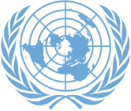It is a very special pleasure for Brunei Darussalam to greet you, Mr. President, as a close friend and neighbour. Please accept our warmest congratulations, both to you General Assembly 10th plenary meeting Fifty-first session 26 September 1996 and to all Malaysians, on your election. May I also express
our appreciation to His Excellency Mr. Freitas do Amaral for his leadership during our fiftieth session.
Our fiftieth anniversary has come and gone. We still remember the many fine statements made last year. Now, however, we have to give them practical substance. In this regard, Mr. President, I was very interested in your recent statements on the role of the General Assembly. I was particularly pleased that you emphasized practical economic and social development.
It was also most encouraging to hear you say that you intend to do all you can for the cause of United Nations reform. Like you, I feel that the General Assembly must not be paralysed by the analysis of reform. We need concrete proposals from our working groups. Then we can spend our time on the hard work of building consensus.
The need is urgent. Tension and conflict within nations are growing. At the same time, the United Nations is increasingly being asked to solve problems in many new areas of international concern — social, economic and sometimes even criminal —that transcend national borders. It is also expected to address the deep-seated causes of future instability, the widening gap between North and South and the allied problems of overpopulation and urbanization, which have been so sharply exposed by this Organization at recent conferences. Above all, it has to face the results of these problems in the form of mounting intolerance, violent aggression and, all too often, extremism and terrorism.
In trying to do all this, its resources are overstretched. For this reason, I would like to thank the Secretary-General, his representatives and all those who are serving this Organization in the field, often in extremely difficult conditions. Their work represents a deep commitment to the cause of peace and stability in the world and I admire and greatly appreciate it. However, I also tend to think that maybe we are asking them to take on new tasks with old or outdated tools. If they are not provided with the means to manage our affairs well, then we in the United Nations are at fault.
In this respect, the tragedy of Bosnia is a warning to us. Certainly, we in Brunei Darussalam welcome recent developments and will continue to give our strong support to the new Government in Bosnia. At the same time, I feel that all of us in this Assembly should recognize the extent to which the events of the last five years reveal our own shortcomings.
We hope that the Security Council will now begin to insist that all agreements be resolutely kept. We would like to see it acting firmly against political pressure from any quarter and ensuring that nothing is allowed to stand in the way of the peoples’ recovery.
I say this with particular concern as we are now facing what could become another emblem of failure for us: the current situation in the Middle East. Until quite recently, this was a problem which had defied solution since the earliest days of this Organization. Then, at last, a peace agreement was reached which gave us a realistic glimpse of hope. Even though we realized that it would be a very difficult process,
we felt optimistic. However, a new Government in Israel now appears to be challenging the very basis on which our own hopes for peace were founded. The solutions that appeared to be within the grasp of the parties directly concerned are under threat. Rather than becoming more manageable, the scope of the so-called Middle East problem has now extended to include the people of Iraq.
It is consequently with great concern that Brunei Darussalam adds its voice to the many who wish to impress on the leaders of Israel the need to continue the peace process, not just by making statements, but in the full spirit of the agreements reached in Madrid and Oslo.
What I have briefly described represents the sum of economic, social and political problems, which in our view calls for a new approach on our part. This can only be developed, we feel, when the United Nations is reformed. I say this because we are seeing the emergence of a new type of international community, far more diverse than the one our founders knew. At the same time, it is one which is being drawn even closer together through the advance of technology and communications — the “global village” of popular description.
There are many reasons to welcome this. It could mean that we all learn to acknowledge and appreciate our diversity and to take on the best aspects of a real village. However, there is no guarantee. Villages are not always pleasant places to live in. They have their darker side. Modern technology may well encourage neighbourly cooperation, but it is just as capable of enhancing the hostile elements of primitive village life. It could set up a permanent division between the developed and the developing worlds.
That is why I feel it is essential for us to find an effective new approach to the tremendous changes taking place today. As members know, this is what we are trying to develop in South-East Asia. The way we have chosen has enabled us to promote programmes aimed at preventive diplomacy and economic cooperation in our region. It has also meant that we have been able to offer some wider assistance to the cause of South-South cooperation.
These are specific measures with practical aims and they are producing clear results, but they also have a broader and deeper effect. They enable us not only to manage the diversity of our region, but also, at a very human level, to learn to appreciate each others’ differences and enjoy the challenge of working together.
By way of example, I would like to commend our friends and colleagues in Cambodia, Laos and Myanmar for their intention to join the Association of South-East Asian Nations (ASEAN). They are making a lasting contribution to peace and stability in our region. We are therefore delighted to be on the verge of seeing the whole of South-East Asia working together in cooperation.
What this has led to in terms of strengthening international peace and security is illustrated by our very extensive dialogue process. One practical result of this in our region was the signing of the South-East Asia Nuclear- Weapon-Free Zone Treaty at the last ASEAN summit. This is a Treaty which we would like all nuclear-weapon States to join as a commitment to peace in our region. It was in this spirit that we endorsed the resolution on the Comprehensive Nuclear-Test-Ban Treaty, passed by this Assembly earlier this month, as a first step towards worldwide nuclear disarmament.
What we are trying to stress is the need for inclusion, drawing together all parties to a problem, working towards consensus rather than demanding compromise and bringing everyone into the mainstream of decision-making. The kind of results we hope for were shown just this month in the achievements of the Government of the Philippines and the leaders of the Moro National Liberation Front through the good offices of Indonesia. Their efforts brought to an end more than 20 years of violence and hostility, and I would like to congratulate all the parties involved.
We see this as reflecting the need that lies behind the strong calls that many Member States have made for reform of this Organization. It acknowledges that aggression must be dealt with firmly, but it also recognizes what has been tragically impressed upon us all over the past few years in Europe, Africa and Asia. It is what guides all our work in our region and, I suggest, must be the starting point for any new approach to the conduct of international affairs today. It is the knowledge that, if we do not accept and
willingly embrace diversity, there is a price to be paid and it is unacceptable.


